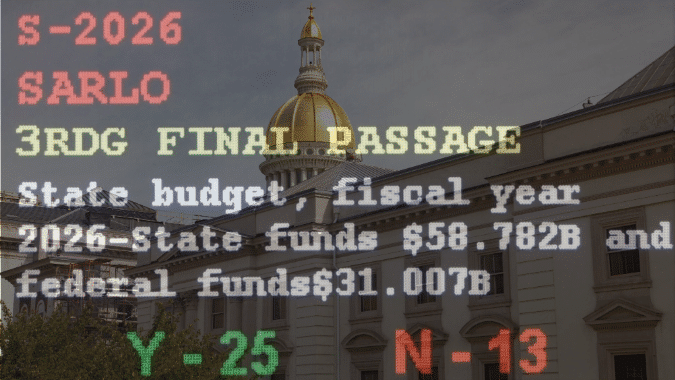In the NJCPA Society’s latest Issues Watch podcast, NJBIA Chief Government Affairs Officer Christopher Emigholz questioned why a proposed $1 billion tax now on corporations is the governor's first option to plug a future NJ TRANSIT budget deficit, instead of implementing efficiencies.
Gov. Phil Murphy has proposed a $1 billion retroactive tax on New Jersey’s largest companies in his FY25 state budget proposal to address a fiscal cliff that the mass transit agency won’t face until FY26, Emigholz told Jeff Kaszerman, the host of the weekly podcast produced by the New Jersey Society of Certified Public Accountants.
"Next year ... they will have a hole in their budget, but have we adequately looked at them for reforms to make them more efficient, so they won’t need as much money?” Emigholz asked, noting the governor’s proposed corporate transit tax is retroactive to Jan. 1, 2024.
Making NJ TRANSIT more efficient before their FY26 budget shortfall occurs is important because “maybe we’ll never get back to the amount of people using trains and buses that we used to” prior to the COVID-19 pandemic, Emigholz said.
NJBIA supports investments in mass transit infrastructure, Emigholz added. “But can we figure how to find that investment through the time-honored approach of time and discipline as we did with ramping up school aid?”
Instead of increasing taxes by $1 billion all at once, the state should increase funding over time with the natural growth of budget revenues and by being disciplined about its spending priorities, Emigholz said.
Go here to listen to the NJCPA podcast.




